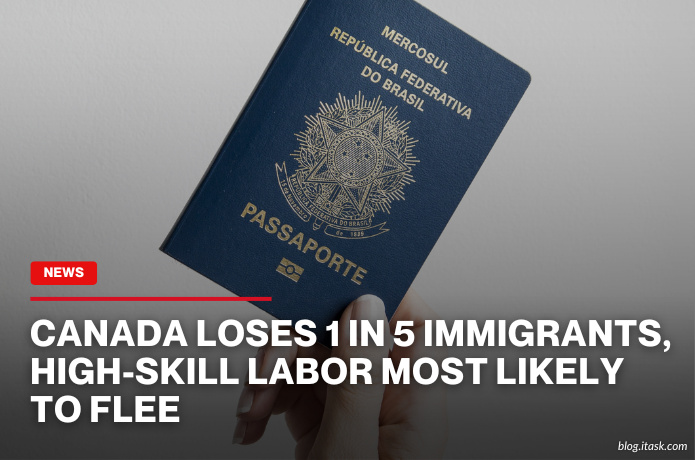Canada Loses 1 In 5 Immigrants, High-Skill Labor Most Likely To Flee
Canada Loses 1 In 5 Immigrants, High-Skill Labor Most Likely To Flee

Canada's immigration strategy aims to address labour shortages, particularly in high-skill industries, but troubling trends suggest the country is struggling to retain these workers. A new report from the Institute for Canadian Citizenship (ICC), conducted by the Conference Board of Canada, reveals that one in five immigrants who arrived between 1982 and 2019 has left the country. This outflow is especially pronounced among highly skilled individuals, undermining efforts to bolster the economy with specialized talent.
A primary factor driving these departures is Canada's relatively high cost of living, particularly in urban centres where many immigrants settle. Housing affordability challenges and stagnant wages further discourage skilled workers from staying. Many of these individuals move to countries offering more competitive salaries, better work-life balance, or lower living expenses, leaving Canada struggling to maintain its talent pool.
The implications for the Canadian economy are severe. Losing skilled immigrants reduces innovation and productivity in key sectors, such as technology and healthcare, where skilled labour is most critical. Furthermore, this trend undermines the government’s goals of using immigration to address workforce shortages and support aging demographics. Policymakers face the challenge of not only attracting talent but also ensuring they have reasons to stay.
Efforts to retain immigrants include policies aimed at improving living conditions and workplace opportunities. However, critics argue that these measures are insufficient compared to initiatives in other countries. For example, nations like Germany and Australia have adopted targeted programs to ensure skilled immigrants receive competitive benefits and long-term incentives to remain in their new homes.
The issue highlights broader questions about Canada's economic model and its reliance on immigration to sustain growth. Without addressing structural problems such as housing affordability, wage stagnation, and the rising cost of living, experts warn that Canada risks turning into a transit point rather than a destination for global talent.
Ultimately, retaining skilled immigrants is crucial for Canada’s future economic stability and global competitiveness. Policymakers must act decisively to address the barriers driving this exodus. Only through comprehensive reforms can Canada hope to turn the tide and ensure that the skilled workers it attracts choose to build lasting futures in the country.
